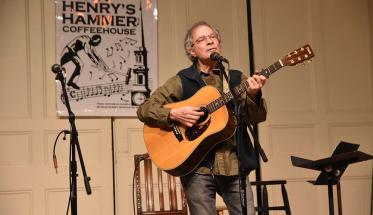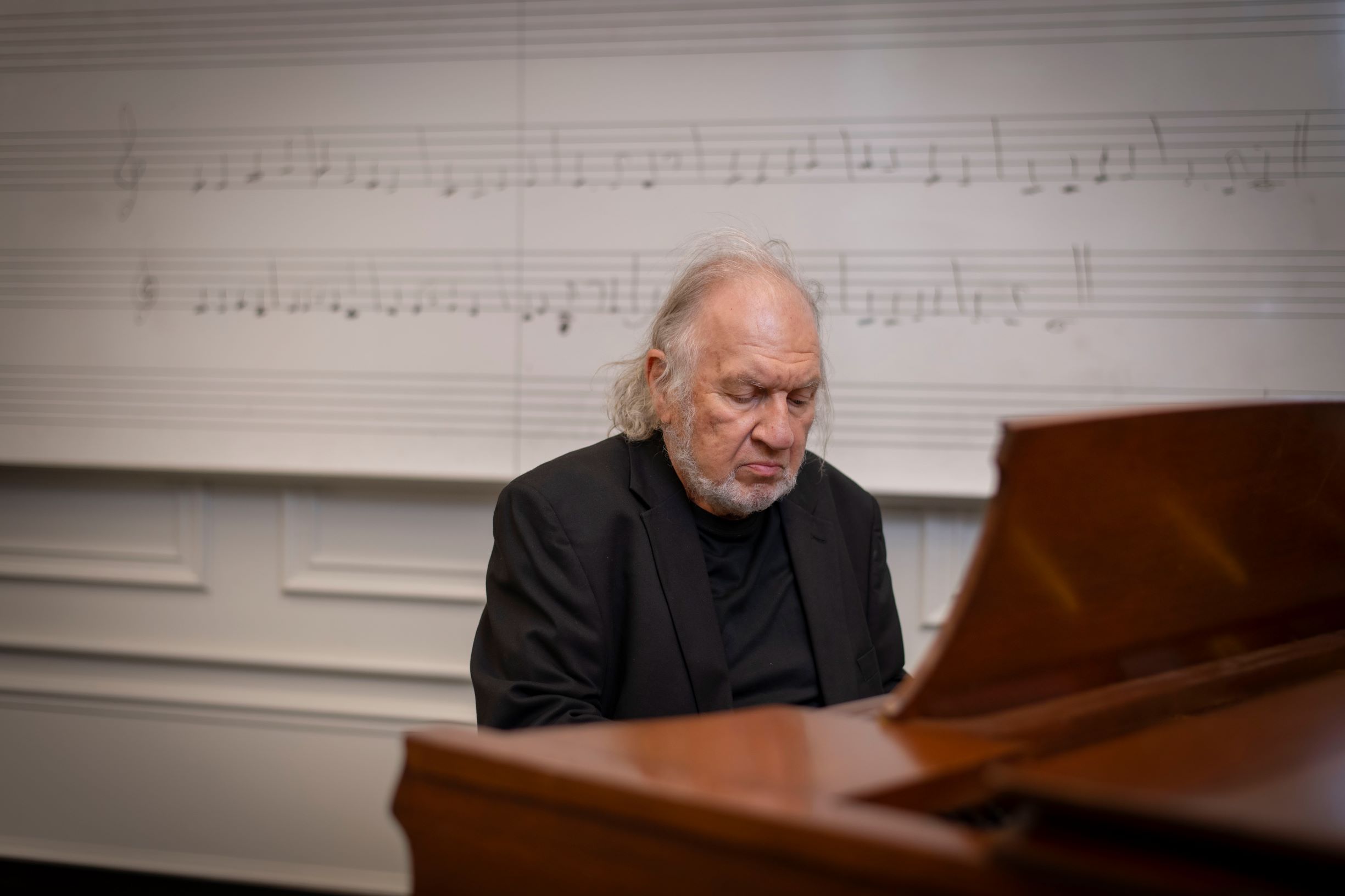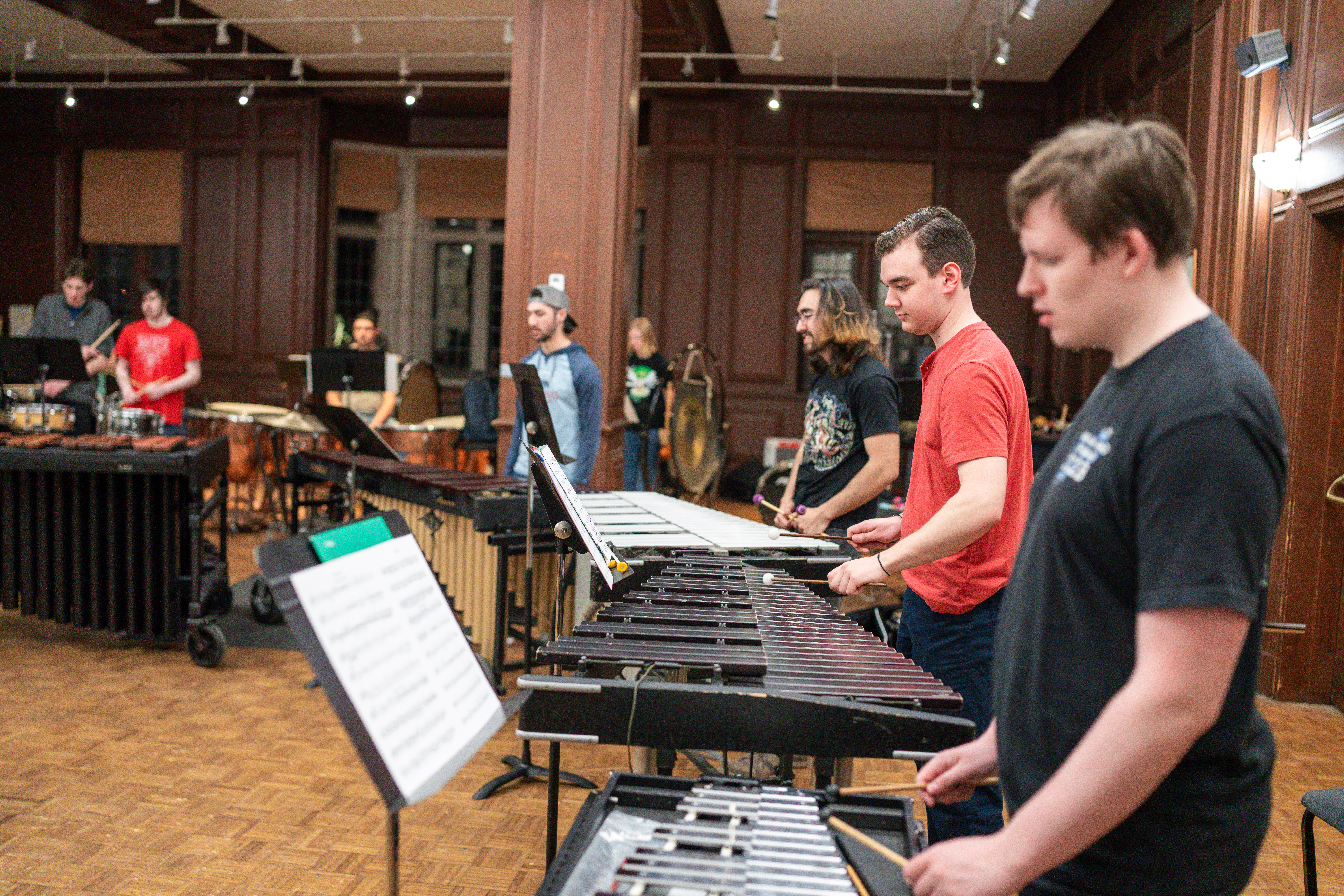It’s a given that associate professor of physics Rick Quimby would be comfortable at the front of a lecture hall or in a lab, but it might come as a surprise to learn that he’s just as at home behind the piano, soundboard, guitar, microphone, or ... well, you get the idea. He recently sat down with The Daily Herd to discuss musical influences, coffeehouse concerts, and collaborations with his writing and performing partner Linda McCarthy in their duo, Owengale.
And that’s music to our ears.
How did you get interested in music?
I’ve been interested in music since I was eight or nine years old. I started playing cornet in the middle school band, so I got introduced to the basics of reading music very early. I really enjoyed it. I took piano lessons when I was around 10 or 11. At some point, probably two years after I started, I learned to figure out chords on my own. I listened to Beatles songs on the radio. And once I learned to do that, I was figuring out the chords to the songs. It just came naturally.
I had a band in high school—we called it The New Rock Brass. We filled the living room with our music. I wrote out all of the musical notation and scores for everybody.
When I was an undergrad at Clarkson College, I was exposed to some folk musicians for the first time. They came to the coffeehouse on campus and they were just playing guitar and singing these ballads, and I thought, “This is really good music!” I wanted to learn more about that. Some friends had introduced me to people like Cat Stevens, and all the ’60s and ’70s folk singers. I learned to sing all those songs and perform with other people at college.
I was a DJ in the 1980s and ’90s on WICN-FM (in Worcester) on a radio show called Open Hoot! I learned a lot about folk music by playing folk albums on that show. In addition to playing albums, I made recordings of the concerts at John Henry’s Hammer and I would play them on my show. In fact, I called that segment “The Coffeehouse Connection.”
I’ve been focused on electronics and physics since I got into school and music stayed as a hobby. It’s never been a vocation, it’s always been an avocation. But it’s a serious avocation. I like electrical engineering, and I like technology, and I like sound systems. I am recording not only myself and Owengale, but other musicians ... to help them get their music out.




